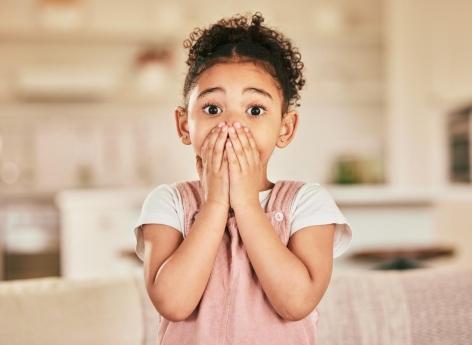Toddlers and adolescents from homoparental couples develop in the same way, if not better, than those in so-called “traditional” families.

- Children of sexual minority parents are not disadvantaged compared to those of heterosexual couples.
- They are said to be “more tolerant of diversity and more considerate of young children”.
- The latter would be less inclined to identify as heterosexual when they grow up than children from so-called “traditional” families.
The sexual orientation and gender identity of parents are not determining factors in the development of children. This is the conclusion of a study, the results of which were published in the journal BMJ Global Health. “The number of children living in families with lesbian, gay, bisexual, transgender or queer parents has increased in recent years,” wrote the researchers from Guangxi Medical University (China) and Duke University School of Medicine (USA). In this work, their goal was to determine whether there were differences in outcomes between sexual minority families and families with opposite-sex parents.
34 studies on children and their families classified into 11 themes
To carry out their study, the team reviewed 34 cohorts published between January 1989 and April 2022 and carried out in countries where same-sex relationships were legally recognized. The research was categorized into 11 themes: children’s psychological adjustment, physical health, gender role behavior, gender identity/sexual orientation and education level, parental mental health and parenting stress, parent-child relationships, relationship satisfaction, family functioning, and social support. Overall, 16 of 34 cohorts were included in the meta-analyses.
Children of same-sex couples are more tolerant and caring
According to the data, most outcomes were similar between these two family types. For some themes, such as the child’s psychological adjustment and child-parent relationships, the results were better for homoparental families. “Growing up with sexual minority parents may confer certain advantages on children. They have been described as more tolerant of diversity and more caring towards young children than children of heterosexual parents,” explain the authors in a statement.
However, the analysis showed that same-sex parents did not perform better than opposite-sex parents on relationship satisfaction, mental health, parenting stress, or family functioning. . Risk factors for poor outcomes for sexual minority families included stigma, discrimination, and inadequate social support.
“Gender stereotypes are less marked in homoparental families”
According to the results, children living in families with sexual minority parents were less likely to identify as heterosexual when they grew up than children who grew up in so-called “traditional” families. “Gender stereotypes may be less marked in families where the parents belong to a sexual minority, and this effect may be positive. Exploration of gender identity and sexual orientation can strengthen the capacity children to succeed and thrive in a variety of contexts”, specified the team.















